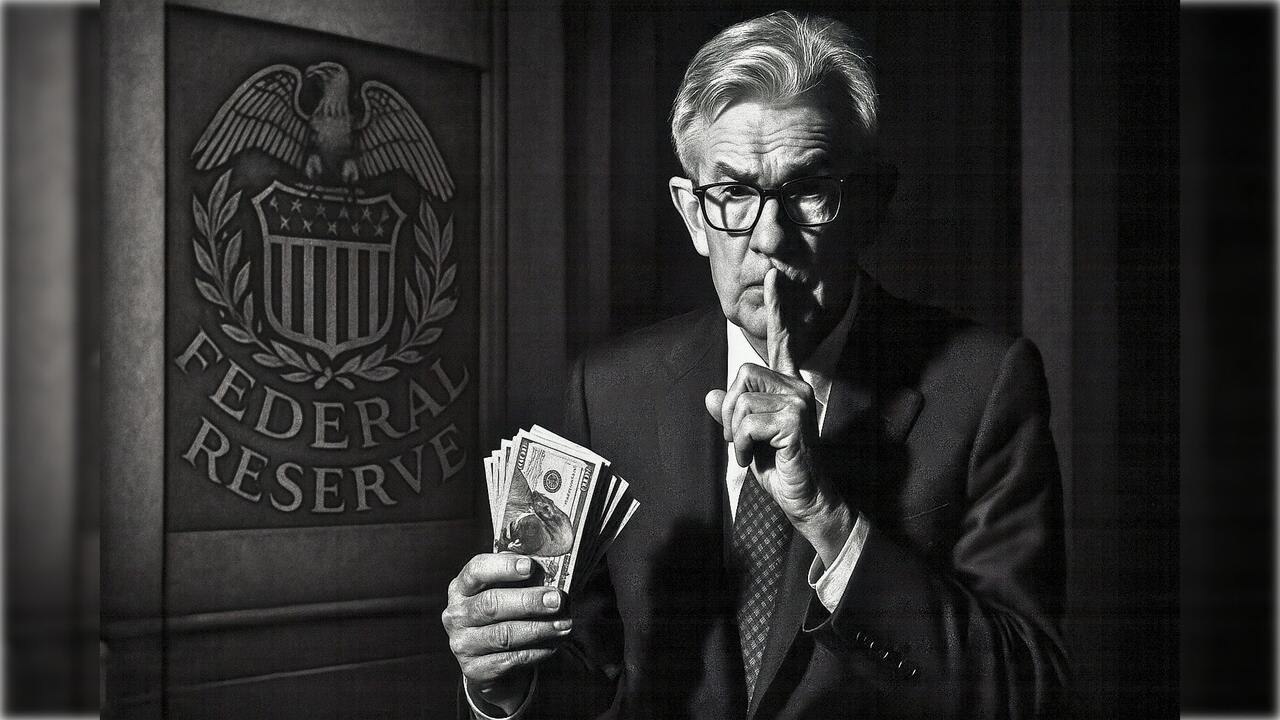(Peter St Onge, Money Metals News Service) Donald Trump is threatening to replace Jerome Powell — or even appoint himself Fed chair.
So it’s a fruitful moment to ask: Should central banks be independent?
More importantly, can they be independent?
Or will a central bank inevitably serve their banking masters and the permanent bureaucracy — the Deep State?
Trump vs Powell
Donald Trump has been burning up the mean tweets over Jerome Powell’s strangling interest rates. He’s variously called Powell, very dumb, very stupid, low IQ, numbskull, major loser, and Mr. Too Late.
The issue is Powell keeping interest rates at some of the highest in 30 years despite inflation running a measly 1% since Trump took office.
High rates strangle jobs, growth, and consumer debt, and keep housing on the edge of catastrophe.
And Powell’s methadone clinic stands in contrast to 112 years of the Fed cutting whenever inflation drops below 2%.

Now, some economists are uneasy with the pressure campaign. Because academic studies in monetary economics say central bank independence is a good thing.
As in keeping politicians — and their voters — away from central banks leads to lower inflation.
Of course, it’s important to note most monetary economists are literally paid by the Fed — estimates range around 60-70%. And having worked in academia, that money will go to the prestigious professors. Which the rest follow along like dogs.
While some economic journals are literally run by the Fed.
So, yes, studies would say the Fed should be an economic dictatorship. You get what you pay for.
The Myth of Fed Independence
Even if we ignore potential corruption, the problem is we don’t actually have an independent Fed.
In the Fed’s 112 years, average rates under Republican presidents are much higher than Democrats — 4.9% vs 3.8%.
FDR got sweetheart 1.5% rates. Reagan got 10.2%.
It’s even worse adjusting for inflation: 0.7% real rates for Dems — money’s almost free. 3.1% for Republicans.
So all-you-can-eat for Democrat Presidents, 4 years of Nurse Ratched for Republicans.
If we focus on the period since the Nixon Shock, when the gold standard was replaced with money-printers gone wild, it’s actually negative 0.1% real rates under Democrats — literally free money.
And fully 2 points higher for Republicans.
The only time the Fed breaks character is when it’s time to bail out Wall Street. So, 2008, 2001, or 1987.

A Tale of Two Powells
This all brings us to Powell.
Under Joe Biden, he kept real rates less than a tenth of a percent. In fact, they were negative 58% of the time — 28 months.
Joe Biden was even the lucky beneficiary of a rate cut just 48 days before the election — the first since 2019.
Compare this to Trump’s current term, where real rates have averaged 3.2% — higher than all but five Democrat years in the past 112.
Powell’s excuse is tariffs could raise inflation.
But there’s been zero tariff inflation — foreigners are eating tariffs like in Trump’s first term.
And even the Fed admits the worst-case scenario on tariffs could be 2 to 3 percent one-time inflation. Twenty times less than the Biden-era inflation, Powell obediently midwifed.

What’s Next
Central bank independence is fundamentally undemocratic — it hands our life’s work to a cartel of bankers who, in practice, deliver inflation, recession, and bailouts.
Moreover, true central bank independence is impossible. A central bank will always serve the bankers and the permanent government bureaucracy who do them favors, from millions of dollars in speaking fees to cushy golden parachutes at NGO’s, the IMF, or ambassadorships.
The Fed, like all central banks, is a key hub of the Deep State. So-called independence is a smokescreen to give that cabal total control. But so far, Trump hasn’t shown an appetite to rock the boat — it’s just tweets.
Suggesting he’ll likely wait Powell out and appoint an easy-money Chair.
And pray the Fed doesn’t turn on him again.
Originally Published on ProfStOnge.
Peter St. Onge writes articles about Economics and Freedom. He’s an economist at the Heritage Foundation, a Fellow at the Mises Institute, and a former professor at Taiwan’s Feng Chia University.

